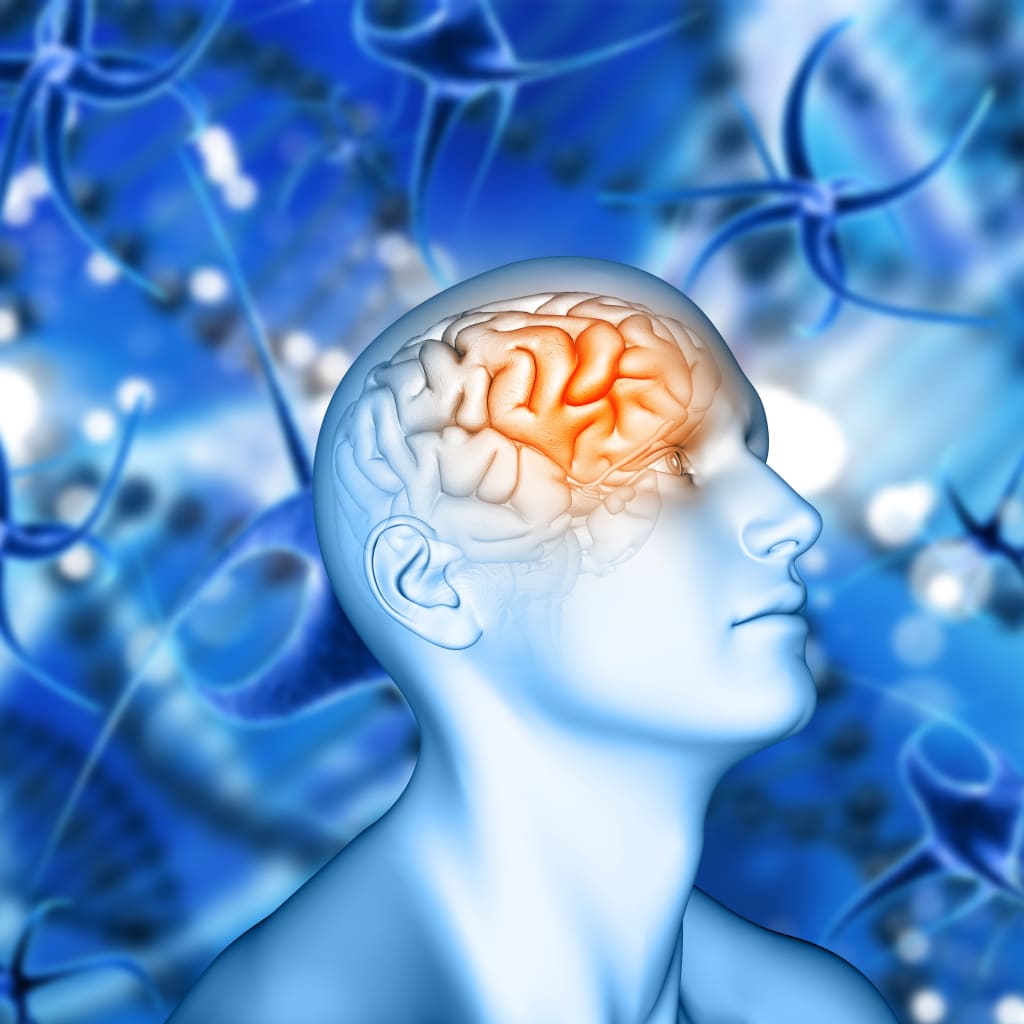The Surprising Connection Between Gut Health and Mental Health
Interesting story about your guts

Have you ever heard the expression "trust your gut"? It appears that the proverb from long ago might be true after all. Recent studies have uncovered an unanticipated connection between gut health and mental health, demonstrating that these two biological processes can have a significant impact on one another despite appearing to operate independently.
While being usually thought of as separate organs, the gut and the brain are actually tightly connected by a complex network of nerves, hormones, and signalling molecules. The gut-brain axis is a connection between these two regions that impacts our overall mental health as well as how we feel, act, and behave.
In this article, we'll look at the most recent research on the gut-brain axis and the surprising ways that gut health might influence mental health.
The Gut Microbiome and Mental Health
The gut microbiome is a complex and diverse community of trillions of bacteria, fungi, and other microbes that live in the GI tract. Researchers have discovered that this microbiome plays an important role in regulating various aspects of our health, including mental health and well-being, over the last few years. Gut microbiome imbalances have been linked to a variety of mental health issues, including depression, anxiety, and even autism. According to research, people suffering from depression have lower levels of certain types of gut bacteria, whereas those suffering from anxiety may have higher levels of harmful bacteria in their gut.
Furthermore, the gut microbiome can cause widespread inflammation in the body, which contributes to mental health problems. The enteric nervous system, a complex network of neurons that functions independently of the central nervous system and produces neurotransmitters and other signalling molecules that can influence the brain and nervous system, is housed in the gut. Up to 90% of the body's serotonin, which regulates mood and emotions, is produced in the gut, and other gut-derived molecules such as short-chain fatty acids and tryptophan can also influence the brain and improve mental health outcomes. We can potentially unlock the therapeutic potential of the gut-brain axis and improve mental health outcomes for people all over the world by prioritising gut health through diet, lifestyle, and other strategies.
The Gut Microbiome and Neurotransmitters
Neurotransmitters are chemical messengers that help neurons in the brain and nervous system communicate with one another. Many important neurotransmitters for mental health and well-being, such as serotonin, dopamine, and GABA, are produced not only in the brain, but also in the gut. This means that imbalances in the gut microbiome may lead to imbalances in neurotransmitter levels, which may contribute to a variety of mental health issues.
Serotonin, for example, is a neurotransmitter that is important in mood and emotion regulation. According to research, the gut produces up to 90% of the body's serotonin, and imbalances in the gut microbiome can lead to lower levels of this neurotransmitter. This is especially important for conditions like depression, which is often associated with low levels of serotonin.
Similarly, dopamine is a neurotransmitter that regulates reward, motivation, and pleasure. According to research, imbalances in the gut microbiome can cause disruptions in dopamine signalling, which can contribute to conditions such as depression and addiction.
GABA, another important neurotransmitter, is essential for anxiety and stress regulation. GABA can be produced by certain types of gut bacteria, and imbalances in the gut microbiome can result in lower levels of this neurotransmitter.
Overall, the relationship between the gut microbiome and neurotransmitters is complicated and far from clear. However, research suggests that we may be able to support optimal neurotransmitter levels and improve mental health outcomes by promoting a healthy gut microbiome through strategies such as diet, lifestyle changes, and probiotics.
The Gut Microbiome and Inflammation
Inflammation is the immune system's natural response to protect the body from infection, injury, and other threats. When inflammation becomes chronic, it can contribute to a variety of health problems, including mental health issues such as depression and anxiety.
According to research, imbalances in the gut microbiome can cause chronic inflammation throughout the body. This is due to the fact that certain types of gut bacteria can produce toxins and other harmful substances that can cause an immune response and inflammation. Furthermore, imbalances in the gut microbiome can cause "leaky gut," a condition in which the gut lining becomes permeable and allows harmful substances to enter the bloodstream. This can also lead to chronic inflammation and other health issues.
The relationship between inflammation and mental health is complicated, but research has found that chronic inflammation can cause changes in the brain and nervous system that contribute to mental health conditions such as depression and anxiety. Inflammation, for example, can cause changes in neurotransmitter levels such as serotonin and dopamine, as well as changes in brain structure and function.
We may be able to reduce chronic inflammation and support optimal mental health outcomes by promoting a healthy gut microbiome. This can be accomplished by following strategies such as eating a healthy, plant-based diet high in fibre, fermented foods, and other gut-friendly foods, exercising regularly, managing stress, and taking probiotics and other supplements that promote gut health.
Strategies for Promoting Gut Health and Mental Health
There are several strategies that can be used to promote both gut health and mental health. Here are a couple of examples:
Maintain a healthy diet: A diet high in whole, plant-based foods such as fruits, vegetables, legumes, whole grains, nuts, and seeds can aid in the promotion of a healthy gut microbiome. Furthermore, fermented foods such as kimchi, sauerkraut, and yoghurt contain probiotics that can help with gut health.
Get regular exercise: Studies have shown that exercise has numerous benefits for both gut health and mental health. It can aid in the reduction of inflammation, the promotion of healthy digestion, and the growth of beneficial gut bacteria. Furthermore, exercise has been shown to be an effective way to reduce anxiety and depression symptoms.
Manage stress: Chronic stress can be detrimental to both gut and mental health. Stress management techniques such as meditation, deep breathing exercises, and yoga can help reduce inflammation and promote a healthy gut microbiome.
Consumption of probiotics and other supplements: Probiotics are supplements that contain beneficial bacteria that can aid in the maintenance of a healthy gut microbiome. Other supplements, such as omega-3 fatty acids and vitamin D, have been shown to improve both gut and mental health.
Get enough rest: Sleep is necessary for both gut and mental health. Chronic sleep deprivation can result in gut microbiome imbalances, increased inflammation, and a variety of mental health issues.
By implementing these strategies, you can support both your gut health and your mental health, resulting in improved overall well-being and a lower risk of a variety of health problems.
To summarise, the relationship between gut health and mental health is complex and multifaceted. According to research, imbalances in the gut microbiome can contribute to a variety of mental health issues such as depression, anxiety, and addiction. We can support optimal mental health outcomes by promoting a healthy gut microbiome through strategies such as eating a healthy diet, getting regular exercise, managing stress, and taking probiotics and other supplements. Furthermore, promoting gut health can aid in the reduction of chronic inflammation, which has been linked to a variety of health issues. We can improve our overall well-being and lower our risk of a variety of health issues by taking a holistic approach to health that includes both gut health and mental health.
About the Creator
Dr.Anandharaj Ph.D.
Ph.D. in Biotechnology, writing health & mental-related blogs, #sciencewriter #healthblogger #mentalhealthadvocate






Comments
There are no comments for this story
Be the first to respond and start the conversation.